Search
Did you mean: Gideon?
Search Results
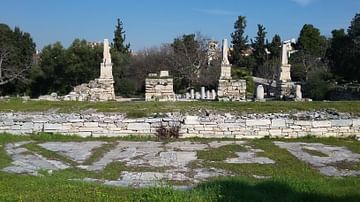
Image
Odeon of Agrippa, Athens
Rear (stage) view of the Odeon of Agrippa at the Roman Agora of Athens. It was built in 15 BCE by Marcus Vipsanius Agrippa (l. c. 64-12 BCE), Roman statesman, general, and son-in-law of Augustus Caesar. It was a two-story auditorium that...
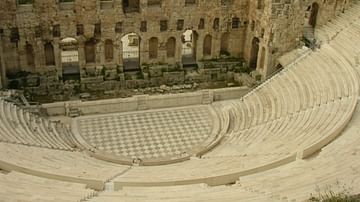
Image
Odeon Of Herodes Atticus, Athens
The theatre of Herodes Atticus, Athens acropolis. 2nd Century CE.
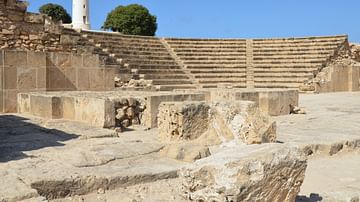
Image
The Odeon of Nea Paphos, Cyprus
The Odeon located in the northeastern part of the ancient city of Nea Paphos (modern-day Paphos in Cyprus), was built in the 2nd century CE and could held approximately 1,200 spectators.
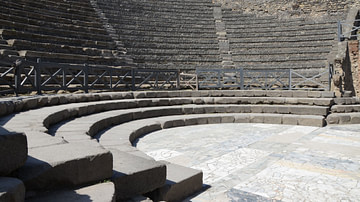
Image
The Odeon of Pompeii
The Odeon in Pompeii was a small roofed theatre used for musical and singing performances as well as for miming, the most popular theatrical genre at the time. The building was built around 80-75 BCE and had a seating capacity of about 1,500...

Article
Visitor’s Guide to the Monuments of Hadrian’s Villa
Hadrian’s Villa near Tivoli, Italy, is an opulent, sprawling garden-villa covering some 120 hectares (296 acres). It was built by Emperor Hadrian (76-138 CE) between 125-134 CE for use as his country estate, although the land may have originally...

Article
Ancient Cyprus: A Travel Guide
Lying at the crossroads of the eastern Mediterranean, the island of Cyprus has long been a meeting point for many of the world's great civilizations. Situated where Europe, Asia and Africa meet, its location shaped its history of bringing...
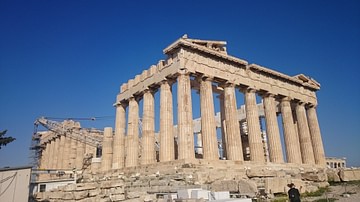
Article
A Tour in Ancient Athens
Athens is mostly associated with its ancient past rather than its modern turbulent state of the latest two hundred years. While walking the centre of the luminous city, the visitor can easily observe both ends of Hellenic culture. The city...
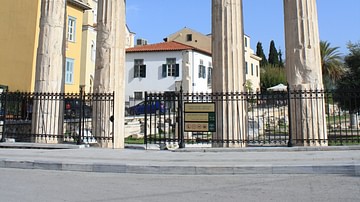
Article
Hellenistic & Roman Agora of Athens
Pericles’ agora of Athens flourished under Macedonian control. After Macedon was defeated by Rome, the Romans added to the district even before Greece was taken as a province and more so afterwards. The Roman version of the agora continued...
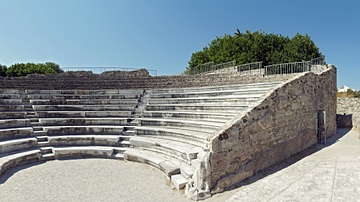
Image
Odeion of Kos
The restored Roman Odeion of Kos, 1st-2nd century CE.

Definition
Agora
The term agora (pronounced ah-go-RAH) is Greek for 'open place of assembly' and, early in the history of Greece, designated the area in a city where free-born citizens could gather to hear civic announcements, muster for military campaigns...